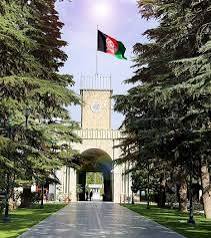Challenges of governance and politics in Afghanistan
Afghanistan has faced many challenges in the field of governance and politics in recent decades. These challenges, which are rooted in internal and external factors, have prevented sustainable development and political stability in the country. Here are some of the most important challenges:
-
Failed governments and ineffective government institutions:
The formation of ineffective governments and weak government institutions has been one of the main factors of instability in Afghanistan. These governments have not been able to ensure the rights and freedoms of citizens and establish social justice. -
Populism and populism in politics:
Instead of focusing on national interests, Afghan politicians have focused on populism and securing personal and group interests. This approach has prevented the formation of a modern state and nation in Afghanistan. -
Non-convergence of ethnicities:
The lack of solidarity and convergence among different ethnic groups is another obstacle to political development in Afghanistan. Ethnic policies of some governments have exacerbated ethnic differences and prevented the creation of national unity. -
Absence of national and active parties:
Political parties in Afghanistan are mainly formed on the basis of ethnicity and personal interests and have not been able to play an effective role in political development. The absence of national and active parties is one of the reasons for the lack of progress in democracy in the country. -
The presence of foreign powers:
Foreign interventions and the presence of international forces in Afghanistan, instead of strengthening the state, have led to more instability and dependence of the country. This presence could not help to form a modern and stable government.  -
Transnational geopolitical challenges:
Afghanistan’s geographical location and transnational geopolitical influences, including the interventions of neighboring countries and great powers, have created serious challenges for governance in the country. -
Widespread corruption:
Corruption at different levels of government has prevented the effective implementation of development policies and programs and has reduced public trust in government institutions.  -
centralized government structure:
Due to the cultural and ethnic diversity of Afghanistan, the centralized government system has not been able to effectively meet the needs of different regions and has caused local dissatisfaction. -
Security challenges:
The presence of armed groups and terrorist activities have threatened the country’s security and prevented progress in various fields.  -
National identity crisis:
The multiplicity of ethnic and religious identities, without the existence of a common national identity, has led to division and disharmony in national policies.
For a better understanding of these challenges and the achievements of the Afghan government in recent years, you can refer to the following video:
